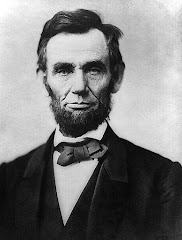As a famous novel cliché goes, the plot thickens. So goes the development in the Alabang Boys case when an investigation is launched anew over allegations that DOJ Special Prosecutor John Resado and his wife received deposits in the sum of P1.6 million in their joint bank account the day he ordered the dismissal of the charges against trio Brodett, Tecson and Joseph.
In his lame attempt to turn the tables on PDEA, DOJ Special Prosecutor John Resada made a surprising but ridiculous claim that it was PDEA lawyer Alvaro Lazaro who attempted to bribe him to drop the charges against the Alabang Boys.
Given his training as a lawyer, let alone his background as a DOJ prosecutor, Resado should know the words “afterthought” and “belated” – lingos with which lawyers are so familiar and glibly use in advancing or defending the cause of their clients. I’m sure Resado himself have made use of these terms several times before in resolving cases brought before him for preliminary investigations.
The implausibility of the claim can readily be seen. It was only after more than a month and a series of congressional investigations, not to mention the media interviews – since Major Marcelino bared alleged bribery attempts to secure the release of the Alabang Boys – that Resado accused Lazaro of being the one who attempted to bribe him.
The Alabang Boys case revolves around the allegations that there were attempts by well-to-do young men arrested in a drug buy bust to bribe PDEA agents and, more seriously, that DOJ prosecutors were bribed in dismissing the charges against them. If the former claim places the PDEA in a good light, the latter casts a serious doubt on the credibility and integrity of the DOJ as an important pillar in the administration of justice; it is an assault not only on the involved prosecutors, but on the institution itself.
Now if indeed Lazaro attempted to bribe Resado – an information that is important and vital in the investigation of this case – Resado should have revealed it at the outset instead of withholding it. The explanation that he was not given the chance to do so is simply ridiculous.
Something as important and serious as the claim that it was in fact PDEA’s lawyer that was guilty of bribery would have been among the major talking points of Resado’s counter-charge in trying to clear himself and in effect the DOJ; besides, if truly Resado was prevented from making the revelation during the congressional investigation, he had several opportunities to do so during the media interviews he gave before and after the investigation. A DOJ press conference was not farfetched.
Viewed now in the light of the timing and circumstances of the revelation, Resado would have himself called his allegation as a “belated” attempt and an “afterthought,” if he were to write the resolution of a similar case before him. It is belated and an afterthought because, as previously discussed, the alleged bribery attempt of Lazaro is something one would not normally keep to himself unless there are extraneous circumstances (excluding the ridiculous claim of lack of opportunity), such as coercions or threats against the claimant’s personal safety or that of his immediate relatives. And it is something one would only make to extricate himself from a difficult situation.
Resado never mentioned that he or a member of his family was ever threatened not to make the revelation about Lazaro’s alleged bribery attempt, thereby negating any plausible extraneous circumstance to justify his previous silence on the matter.
Lazaro’s counter-argument to Resado’s allegation is also worth noting. He argued that if indeed the charges against the Alabang Boys are dismissible then it makes no sense in saying that these boys orchestrated a bribery attempt for the dropping of the charges against them. Why would one go into the trouble of bribing someone to dismiss cases that are bound to be dismissed anyway? If the defendants failed to realize their favorable position given their lack of legal training, surely their lawyer would have seen it from a reading of the arresting officers’ affidavits and any testimony they might have given during the preliminary investigation.
Resado seems to be treading on dangerous grounds. In trying to parry possible charges of bribery and violation of the Comprehensive Dangerous Drugs Act of 2002, possibly for bungling the prosecution of drug cases under section 92 which carries a maximum penalty of imprisonment for 20 years (by law the maximum is imposable for convicted public officials), Resado inadvertently exposed himself to a string of violations of law, from banking, financing and tax laws to ethical rules for public officials and lawyers, for operating an underground lending business.
Resado’s latest refusal to waive his right to secrecy of his bank deposits, rather than help his defense, will only raise more questions on his innocence. Since he already exposed himself to possible tax evasion charges it is now pointless to hide under the veil of the bank secrecy law, for more sums of undeclared income would not make much of a difference anymore in so far as his self-incriminating declaration is concerned.
There are now only two narrow options that Resado must choose from in the face of these developments: (1) come clean and reveal whatever he knows, if he has anything to confess about the Alabang Boys case, and he might just be able to work out a plea deal with fellow prosecutors; or (2) get a darn good defense attorney and stop making incredible and incriminating statements.
-














No comments:
Post a Comment